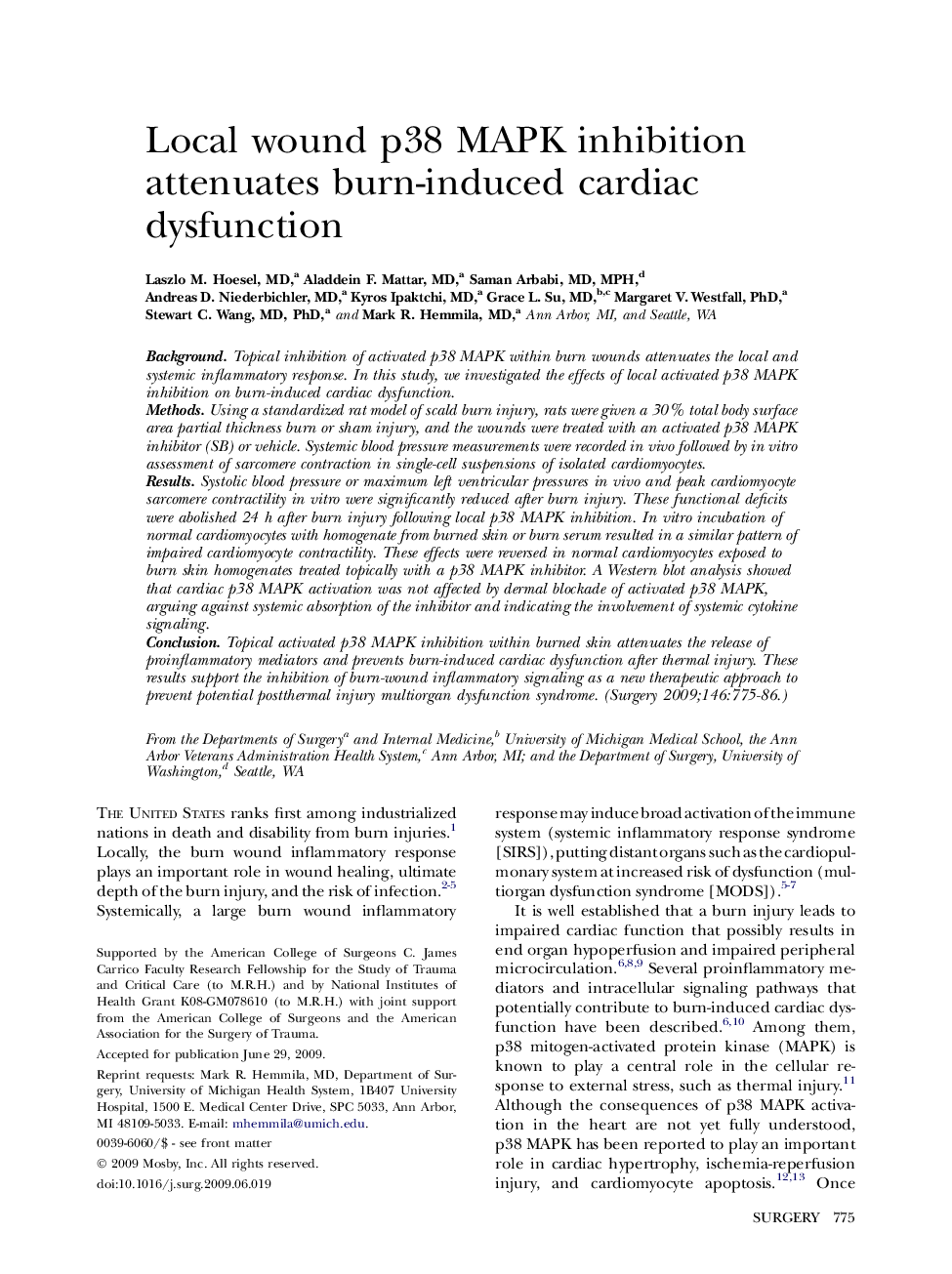| Article ID | Journal | Published Year | Pages | File Type |
|---|---|---|---|---|
| 4309261 | Surgery | 2009 | 12 Pages |
BackgroundTopical inhibition of activated p38 MAPK within burn wounds attenuates the local and systemic inflammatory response. In this study, we investigated the effects of local activated p38 MAPK inhibition on burn-induced cardiac dysfunction.MethodsUsing a standardized rat model of scald burn injury, rats were given a 30% total body surface area partial thickness burn or sham injury, and the wounds were treated with an activated p38 MAPK inhibitor (SB) or vehicle. Systemic blood pressure measurements were recorded in vivo followed by in vitro assessment of sarcomere contraction in single-cell suspensions of isolated cardiomyocytes.ResultsSystolic blood pressure or maximum left ventricular pressures in vivo and peak cardiomyocyte sarcomere contractility in vitro were significantly reduced after burn injury. These functional deficits were abolished 24 h after burn injury following local p38 MAPK inhibition. In vitro incubation of normal cardiomyocytes with homogenate from burned skin or burn serum resulted in a similar pattern of impaired cardiomyocyte contractility. These effects were reversed in normal cardiomyocytes exposed to burn skin homogenates treated topically with a p38 MAPK inhibitor. A Western blot analysis showed that cardiac p38 MAPK activation was not affected by dermal blockade of activated p38 MAPK, arguing against systemic absorption of the inhibitor and indicating the involvement of systemic cytokine signaling.ConclusionTopical activated p38 MAPK inhibition within burned skin attenuates the release of proinflammatory mediators and prevents burn-induced cardiac dysfunction after thermal injury. These results support the inhibition of burn-wound inflammatory signaling as a new therapeutic approach to prevent potential postthermal injury multiorgan dysfunction syndrome.
